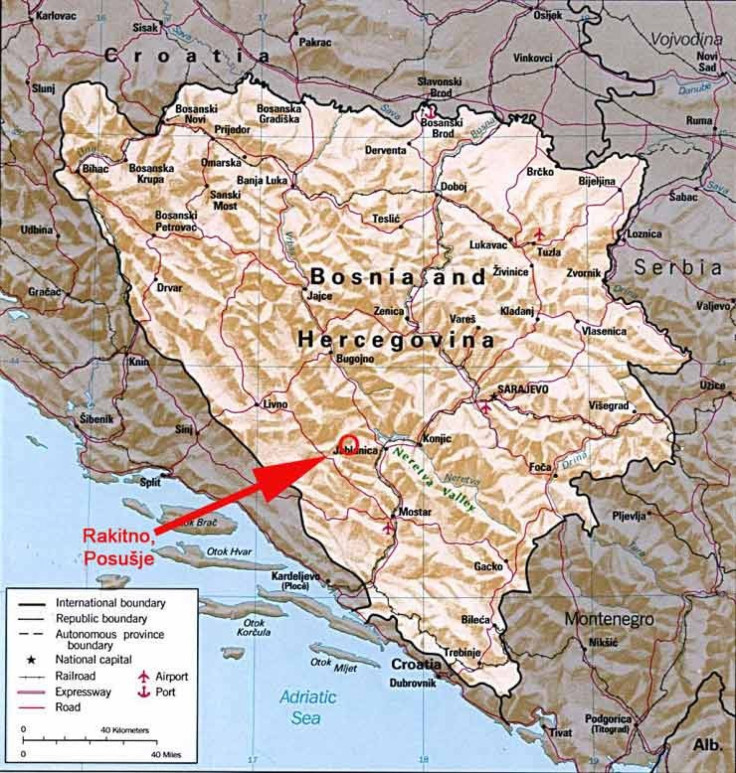Bosniaks, Croats, And Serbs Unite To Seek Compensation For Wartime Detention

An elderly Bosnian is seeking compensation for the thousands of people who spent time in detention camps during the civil war that ripped through the former Yugoslavia in the early 1990s.
According to a report in the Guardian newspaper of Britain, 72-year old Zijahudin Smailagic has somehow organized 3,000 Bosniaks, 2,600 Croats and about 1,500 Serbs (enemies during that period of bloody communal violence) to press state authorities to pay up for the time they lost while incarcerated.
During the brutal wars of the early 1990s, more than 650 detention camps were scattered across Bosnia and Herzegovina. Some were controlled by the Bosniak (Muslim)-dominated Army of Bosnia and Herzegovina, others by the Serb-operated Army of Republika Srpska, and the remainder by the Croatian Defense Council.
Smailagic is now president of an entity called the Regional Former Detainees Association, which is one of the very few multi-ethnic organizations in the still-divided country. The association has won all 13 compensation cases it has brought so far before a court in the city of Sarajevo, the capital of Bosnia and Herzegovina. Thousands of other cases remain pending – 3,500 in the city of Banja Luka, 2,000 in Sarajevo.
Smailagic himself was held at a camp run by Serbs in Banja Luka for 17 months.
"Back in 1999, I became the first person to sue [the government of Bosnia] for my suffering,” he told the Guardian.
“In 2003, the municipal court in Banja Luka ruled in my favor and awarded me [the equivalent to €4] for each day I spent in the camp. It was less than you would pay for breakfast. That moved me to appeal on behalf of others."
According to the Balkan Investigating Reporting Network, Smailagic received a total of €2,200.
He explained why, against all odds, he sought to unite former enemies for a common cause.
“This is the only way forward for those people who have been stripped of their rights,” Smailagic said. “Politics are the reason we do not have a common detainee association. If we want reconciliation, this is our only chance. You should see our members from all sides; they all have the same stories, whether they are Bosniaks, Croats or Serbs. They understand one another.”
Smailagic indicated that while Bosniaks and Croats may file claims in courts in Banja Luka, Serbs are more likely to seek redress in courts in Sarajevo, hundreds of miles to the south.
"That can be a problem for them," Smailagic told the Guardian. "They often don't have the money to travel to Sarajevo. Some give up."
He worries that time may be against the thousands of former prisoners seeking compensation.
“Our biggest problem is the amount of time this all takes. We are very unhappy with the tempo. In Banja Luka, we have been waiting in some cases for five years before the court schedules a hearing. Sarajevo takes three years,” said Smailagic.
Up to 110,000 people died in the Bosnian war, with 2.2 million people displaced, making it the deadliest European conflict since the Second World War.
© Copyright IBTimes 2024. All rights reserved.





















